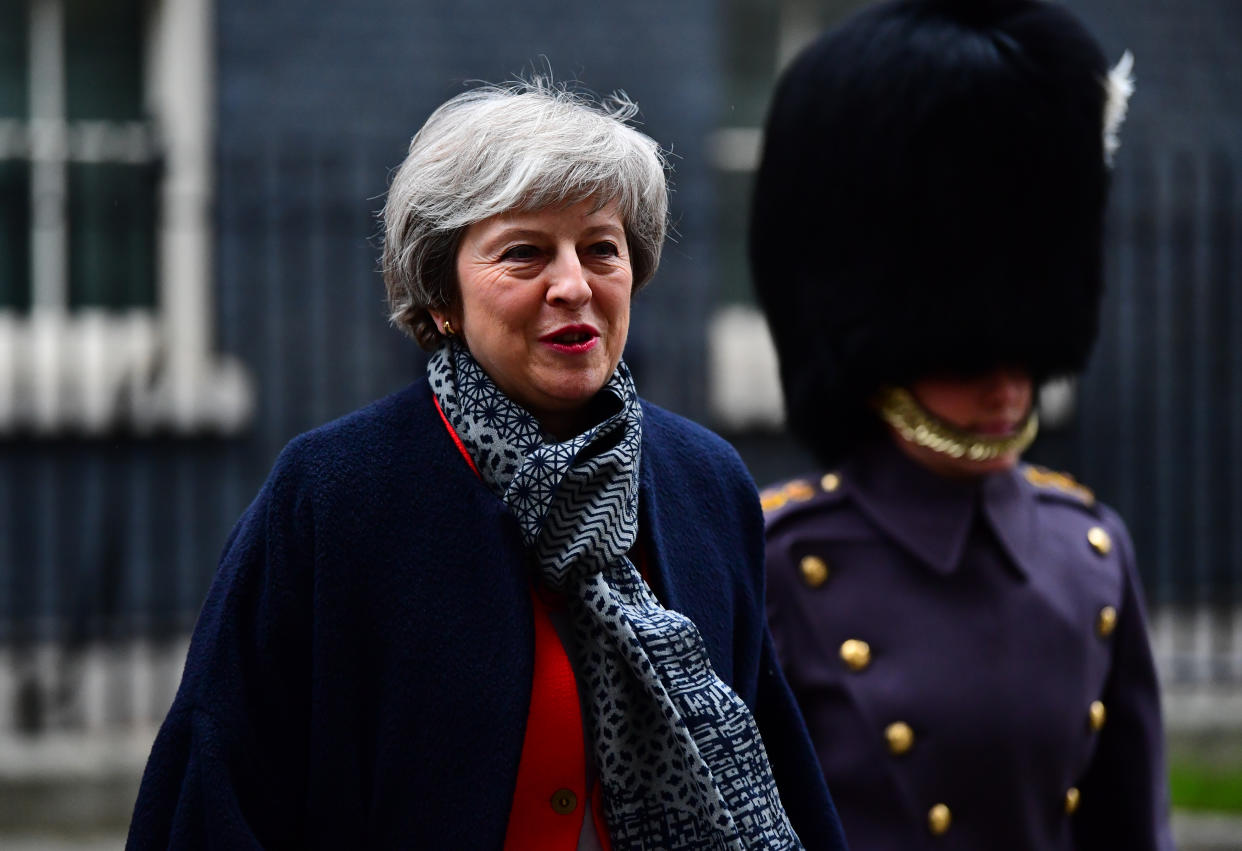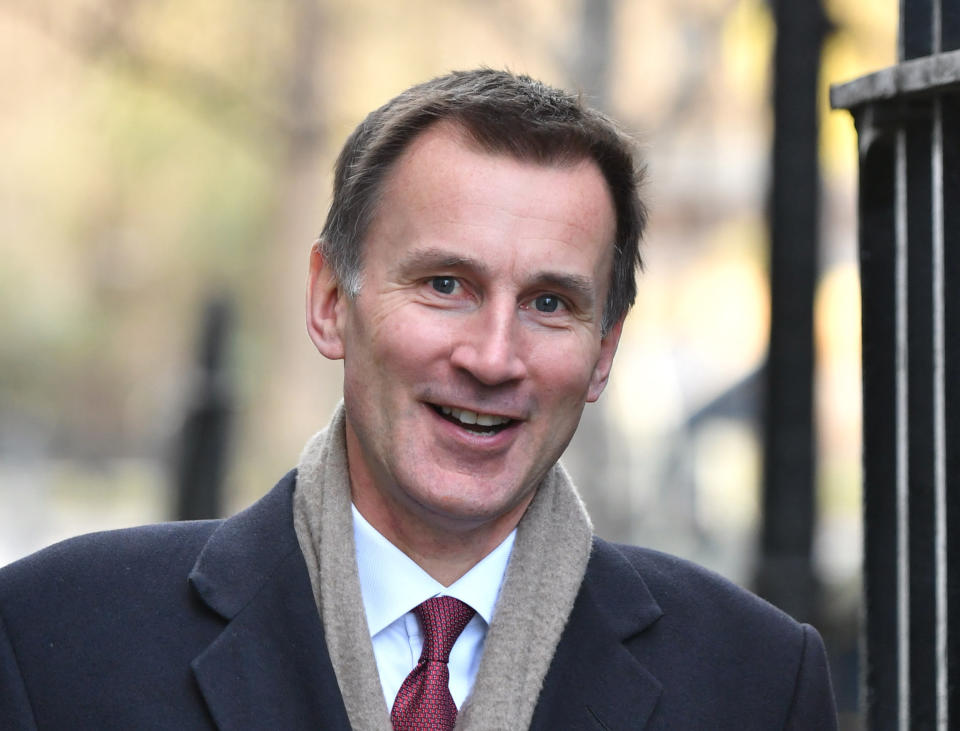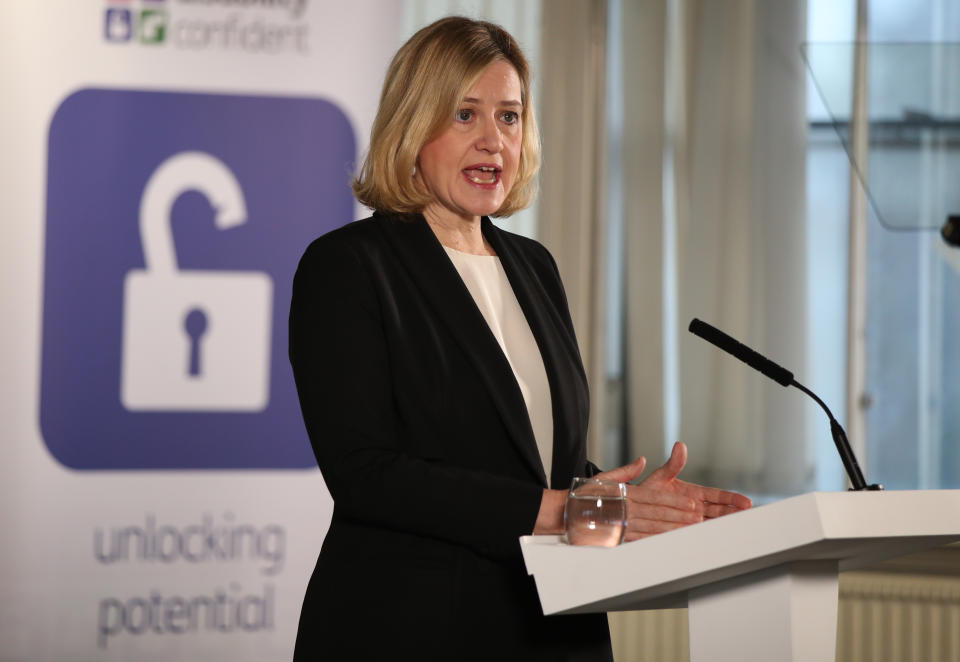Brexit 'will be delayed beyond March 29 due to legal backlog', ministers claim

Brexit is likely to be delayed to deal with a backlog of essential laws that need to be passed before the UK leaves the EU, it has emerged.
Ministerial sources told The Evening Standard that Theresa May is set to announce a plan to push back the date of Brexit beyond 29 March as it currently stands.
At least six essential bills, including the Immigration Bill, need to make it through the Commons before Britain leaves, and the current Parliamentary timetable is unlikely to allow for this to happen.
Number 10 denied that the PM wants to delay Brexit by extending Article 50.
Downing Street said: “It’s government policy that this is not something we are going to do.”
However a change in policy cannot be ruled out as Mrs May moves ever closer to what looks to be a significant defeat on her Brexit deal.
It comes as Jeremy Hunt warned that “Brexit paralysis” could see the UK staying in the EU if MPs vote down Theresa May’s Withdrawal Agreement.

The Foreign Secretary believes that failure to deliver Brexit would be “incredibly damaging” for the UK and something the country would regret for “many, many generations”.
He appealed to MPs who have spent months fighting for their “number one top favourite outcome” to come together behind a Withdrawal Agreement which is “not perfect” but “broadly delivers Brexit”.
Mr Hunt suggested that legally binding assurances from Brussels over the deal’s controversial backstop arrangements should be enough to allay the fears of many MPs over the long-term impact of the Agreement.
Meanwhile, Work and Pensions Secretary Amber Rudd said she is “committed” to ensuring that the UK does not leave without a deal.
During an interview with BBC Radio 4’s Today programme, Ms Rudd three times declined to say whether she would remain a member of the Government if it opted for a no-deal Brexit.
The Cabinet ministers were speaking as MPs prepared for the third day of debate in the House of Commons ahead of next Tuesday’s crunch vote, with Home Secretary Sajid Javid opening proceedings which are expected to be dominated by the issue of migration.

In a significant shift of tone apparently designed to win over hardline Brexiteers, Mr Hunt warned that defeat next week would not necessarily provide MPs with the opportunity to choose their preferred version of Brexit.
The Foreign Secretary told Today: “If this deal is rejected, ultimately what we may end up with is not a different type of Brexit but Brexit paralysis. And Brexit paralysis ultimately could lead to no Brexit.
“I’m saying this would be (an) incredibly damaging breach of trust and it would also be very bad for Britain’s reputation abroad, having decided to leave the EU, if we in the end for whatever reasons found we weren’t able to do it.”
Mr Hunt warned: “If we were, as a political class, not to deliver Brexit, that would be a fundamental breach of trust between the people and the politicians. I think that is something that we would regret for many, many generations.”
MORE: Donald Trump moves closer to declaring national emergency to get funding for Mexico border wall
MORE: ‘Spectacularly bad’ panto offers refunds to all customers
Insisting that he had not given up hope of victory in next week’s vote, he said: “What is important is for MPs on all sides, Brexiters and Remainers, whatever our disagreements, to say ‘We are democrats and the most important thing now is to make sure that we really do deliver Brexit’.”
He warned Eurosceptics that they may not be able to rely on the clock ticking down to the default option of a no-deal Brexit on March 29 if Mrs May’s deal is voted down.
It was not possible for the minority Tory administration to control what happened in Parliament, and Speaker John Bercow had shown that he was “willing to frustrate the Government at every opportunity”, he said.
“I think it’s now looking much less likely that Parliament would allow a no-deal outcome anyway,” said Mr Hunt. “We have seen from this week that Parliament has the ability to assert itself and to shape outcomes.
“I think Parliament is very committed to try to stop no-deal, but I think we have to recognise that there is a deal on the table, it does broadly deliver the Brexit people voted for, and if we don’t find a way to get this through, we are taking some very big risks.”

Mrs May was boosted on Thursday by two Tory backbenchers – her former policy adviser George Freeman, and Trudy Harrison – indicating they will back her deal, as well as by a call from Japanese PM Shinzo Abe for the UK to avoid no-deal.
And the Prime Minister made efforts to reach out to Labour and the unions in an 11th-hour bid to salvage a vote which she is expected to lose by a wide margin.
Asked whether she agreed with Mr Hunt that the UK can thrive after a no-deal Brexit, Ms Rudd told Today: “This is a strong and great country, we will find a way to succeed, but I do not think that no deal would be good for this country and I’m committed to making sure we find an alternative.”

 Yahoo News
Yahoo News 

